The key challenge in coalitions is ensuring that New Delhi and the regional parties manage their differences pertaining to ties with neighbouring countries
As the Narendra Modi led National Democratic Alliance (NDA) government gets ready to take oath on June 9, 2024, several commentators have commented on how a coalition government may result in slowing down of economic reforms, and also impact the country’s foreign policy. NDA secured 293 seats. Notably, BJP was 32 short of a majority as it secured 240 seats.
This scepticism regarding coalition governments is exaggerated. Enough has been written on the landmark economic reforms of 1991 being introduced by a minority government led by the late PV Narasimha Rao. Coalition governments, including two National Democratic Alliance governments -- (1998-1999, 1999-2004) led by late Atal Bihari Vajpayee and then two Congress led United Progressive Alliance UPA governments (2004-2009, 2009-2014) led by Dr Manmohan Singh essentially maintained a continuity in economic policies – until policy paralysis got the better of UPA 2, some of which was genuine and the rest perceived. Even statistically, coalition governments have delivered in terms of economic growth – a strong reiteration being the UPA decade where GDP growth was estimated at 7%.
In terms of foreign policy, especially ties with the US, China, Russia, Japan, South East Asia and Gulf countries, there has been a broad consensus between successive governments over the past three decades, and no regional party is likely to interfere in important decisions. When the Indo-US nuclear deal-- one of the important achievements during Dr Manmohan Singh’s Prime Ministership -- was opposed by the CPM, and the latter withdrew support, the Samajwadi Party came to the UPA’s rescue.
The key challenge in coalitions is ensuring that New Delhi and the regional parties manage their differences pertaining to ties with neighbouring countries. During UPA 2, the West Bengal Chief Minister, Mamata Banerjee who leads the Trinamool Congress (TMC), opposed the Teesta River water agreement and then the Dravida Munnetra Kazhagam (DMK) and All India Anna Dravida Munetra Kazhagam (AIADMK) had a disproportionate influence on New Delhi’s ties with Sri Lanka. These were cited as two clear instances of why a coalition heavily dependent upon regional parties may impact the national interest.
A few points need to be borne in mind here. In the coalition to be sworn in, BJP has 240 seats, which is 30 shy of a majority and if run with deftness is unlikely to face challenges on key foreign policy issues or economic issues. INC had only 209 seats in UPA 2 and was far more dependent upon the DMK. Neither DMK nor TMC are part of this current alliance. Here it would be important to mention that seeking the views of border states – whether led by a regional party or any other party – is beneficial and it is incorrect to draw a binary between the national interest and the interests of states.
A left government, led by Manik Sarkar played a positive role in strengthening India’s ties with Bangladesh both under the Dr Manmohan Singh government as well as Narendra Modi. The BJP government has been seeking the views of North-Eastern states in the context of India’s Act East Policy (specifically India’s ties with South East Asia), so there is no harm in seeking the views of border states governed by other parties; this will only give a push to cooperative federalism.
One of the key allies of the NDA – the TDP is led by Chandrababu Naidu. Naidu is not only a strong proponent of economic reforms, but has also been one of the most pro-active CM’s in terms of ‘economic diplomacy’. His current emphasis is likely to be on putting the state’s economy back on the rail – with an emphasis on drawing FDI for his state and pushing infrastructural development.
Apartfrom seeking inputs of state governments on ties with neighbouring countries, the new government in New Delhi would also do well to work closely on Free Trade Agreement and ensure that all states can benefit equitably from these FTA’s. Several Non-BJP states have held the grouse that projects they deserve were diverted to other states. This perception needs to be addressed.
The central government’s consultations with state governments on the G20 Summit and holding events in several states was a successful example of ‘cooperative federalism’ in the realm of foreign policy and there needs to be more of that. PM Modi had also tried to build a consensus by having an all party meet before the beginning of the event.
Coalition partners are unlikely to stymie key economic reforms or impact foreign policy. Their interventions and inputs, in a constructive manner, may not be a bad thing. The occasional red flags and differences on other important issues by coalition partners – especially those which may have an adverse impact on the political and social fabric – also should be paid heed to. It is thus important to be less dismissive of coalitions and take a more nuanced approach.
The author is a policy analyst and faculty member at the Jindal School of International Affairs, OP Jindal Global University, Sonipat.
(Disclaimer: The views expressed above are the author's own and do not reflect those of DNA)
![submenu-img]() After his arrest in murder case, Darshan lands in more legal trouble; Kannada star will now be charged for...
After his arrest in murder case, Darshan lands in more legal trouble; Kannada star will now be charged for...![submenu-img]() DNA TV Show: Who is the mastermind of alleged NEET-UG paper leak?
DNA TV Show: Who is the mastermind of alleged NEET-UG paper leak?![submenu-img]() Meet man who gets Rs 12.50 crore salary, runs Rs 318000 crore company backed by Ratan Tata
Meet man who gets Rs 12.50 crore salary, runs Rs 318000 crore company backed by Ratan Tata![submenu-img]() Neeraj Chopra wins gold in javelin at Paavo Nurmi Games 2024 with throw of...
Neeraj Chopra wins gold in javelin at Paavo Nurmi Games 2024 with throw of...![submenu-img]() 'Modi ji won't be intimidated': Taiwan after China objects to ties with India
'Modi ji won't be intimidated': Taiwan after China objects to ties with India![submenu-img]() Meet man who cracked NEET-UG at 50 but there is a twist...
Meet man who cracked NEET-UG at 50 but there is a twist...![submenu-img]() Meet IIT-JEE topper, went to IIT Bombay with AIR 1, got job with Rs 70 lakh salary, left it to become a…
Meet IIT-JEE topper, went to IIT Bombay with AIR 1, got job with Rs 70 lakh salary, left it to become a…![submenu-img]() 'If there is 0.001% negligence on the part of anyone it...': SC issues notices to NTA, Centre over NEET-UG
'If there is 0.001% negligence on the part of anyone it...': SC issues notices to NTA, Centre over NEET-UG ![submenu-img]() Meet doctor who cracked UPSC exam, became IAS officer but resigned after seven years due to...
Meet doctor who cracked UPSC exam, became IAS officer but resigned after seven years due to...![submenu-img]() NEET-PG 2024 admit card to be released today; check steps to download
NEET-PG 2024 admit card to be released today; check steps to download ![submenu-img]() DNA Verified: Did Kangana Ranaut party with gangster Abu Salem? Actress reveals who's with her in viral photo
DNA Verified: Did Kangana Ranaut party with gangster Abu Salem? Actress reveals who's with her in viral photo![submenu-img]() DNA Verified: New Delhi Railway Station to be closed for 4 years? Know the truth here
DNA Verified: New Delhi Railway Station to be closed for 4 years? Know the truth here![submenu-img]() DNA Verified: Did RSS chief Mohan Bhagwat praise Congress during Lok Sabha Elections 2024? Know the truth here
DNA Verified: Did RSS chief Mohan Bhagwat praise Congress during Lok Sabha Elections 2024? Know the truth here![submenu-img]() DNA Verified: Is CAA an anti-Muslim law? Centre terms news report as 'misleading'
DNA Verified: Is CAA an anti-Muslim law? Centre terms news report as 'misleading'![submenu-img]() DNA Verified: Lok Sabha Elections 2024 to be held on April 19? Know truth behind viral message
DNA Verified: Lok Sabha Elections 2024 to be held on April 19? Know truth behind viral message![submenu-img]() Triptii Dimri sets the internet on fire in black bikini in beachside photos, fans say 'bhabhi bani baby'
Triptii Dimri sets the internet on fire in black bikini in beachside photos, fans say 'bhabhi bani baby'![submenu-img]() In pics: Ananya Panday dazzles in shimmery green mini dress, poses with Gwyneth Paltrow at Swarovski event in Milan
In pics: Ananya Panday dazzles in shimmery green mini dress, poses with Gwyneth Paltrow at Swarovski event in Milan![submenu-img]() In pics: Sonakshi Sinha's black-themed bachelorette with Huma Qureshi, Zaheer Iqbal's secret bachelor party
In pics: Sonakshi Sinha's black-themed bachelorette with Huma Qureshi, Zaheer Iqbal's secret bachelor party ![submenu-img]() From Jawan to Munjya, 5 films that showcased exceptional VFX and ruled box office recently
From Jawan to Munjya, 5 films that showcased exceptional VFX and ruled box office recently![submenu-img]() In pics: Raghubir Yadav, Chandan Roy celebrate success of Panchayat season 3 with TVF founder Arunabh Kumar, cast, crew
In pics: Raghubir Yadav, Chandan Roy celebrate success of Panchayat season 3 with TVF founder Arunabh Kumar, cast, crew![submenu-img]() DNA Explainer: What is Kafala system that is prevalent in gulf countries? Why is it considered extremely brutal?
DNA Explainer: What is Kafala system that is prevalent in gulf countries? Why is it considered extremely brutal? ![submenu-img]() Lok Sabha Elections 2024: What are exit polls? When and how are they conducted?
Lok Sabha Elections 2024: What are exit polls? When and how are they conducted?![submenu-img]() DNA Explainer: Why was Iranian president Ebrahim Raisi seen as possible successor to Ayatollah Khamenei?
DNA Explainer: Why was Iranian president Ebrahim Raisi seen as possible successor to Ayatollah Khamenei?![submenu-img]() DNA Explainer: Why did deceased Iranian President Ebrahim Raisi wear black turban?
DNA Explainer: Why did deceased Iranian President Ebrahim Raisi wear black turban?![submenu-img]() Iran President Ebrahim Raisi's death: Will it impact gold, oil prices and stock markets?
Iran President Ebrahim Raisi's death: Will it impact gold, oil prices and stock markets?![submenu-img]() After his arrest in murder case, Darshan lands in more legal trouble; Kannada star will now be charged for...
After his arrest in murder case, Darshan lands in more legal trouble; Kannada star will now be charged for...![submenu-img]() Darshan arrest: Pavithra Gowda, co-accused seen smiling during investigation, furious netizens say 'no regret, no guilt'
Darshan arrest: Pavithra Gowda, co-accused seen smiling during investigation, furious netizens say 'no regret, no guilt'![submenu-img]() Meet Captain GR Gopinath, inspired Akshay Kumar's Sarfira, served in Indian Army, founded India's first low-cost airline
Meet Captain GR Gopinath, inspired Akshay Kumar's Sarfira, served in Indian Army, founded India's first low-cost airline![submenu-img]() Justin Timberlake arrested for drunk driving in New York, details inside
Justin Timberlake arrested for drunk driving in New York, details inside![submenu-img]() The Iron Claw review: Brilliant cautionary tale of parental pressure; and a tribute to wrestling's most 'cursed' family
The Iron Claw review: Brilliant cautionary tale of parental pressure; and a tribute to wrestling's most 'cursed' family ![submenu-img]() Country with most number of pyramids, it's not Egypt
Country with most number of pyramids, it's not Egypt![submenu-img]() Mukesh Ambani, Nita Ambani's son Anant Ambani and Radhika Merchant's wedding festivities to start on...
Mukesh Ambani, Nita Ambani's son Anant Ambani and Radhika Merchant's wedding festivities to start on...![submenu-img]() Glaring safety innovation: Finland adopts reflective coating on reindeer antlers to curb road collisions
Glaring safety innovation: Finland adopts reflective coating on reindeer antlers to curb road collisions![submenu-img]() Viral video: Elephant calves sleep under ‘Z++ security’ as herd protectively stands guard
Viral video: Elephant calves sleep under ‘Z++ security’ as herd protectively stands guard![submenu-img]() This man owned Rs 248 crore necklace, first Indian to buy airplane, was wealthier than Mukesh Ambani, Ratan Tata...
This man owned Rs 248 crore necklace, first Indian to buy airplane, was wealthier than Mukesh Ambani, Ratan Tata...

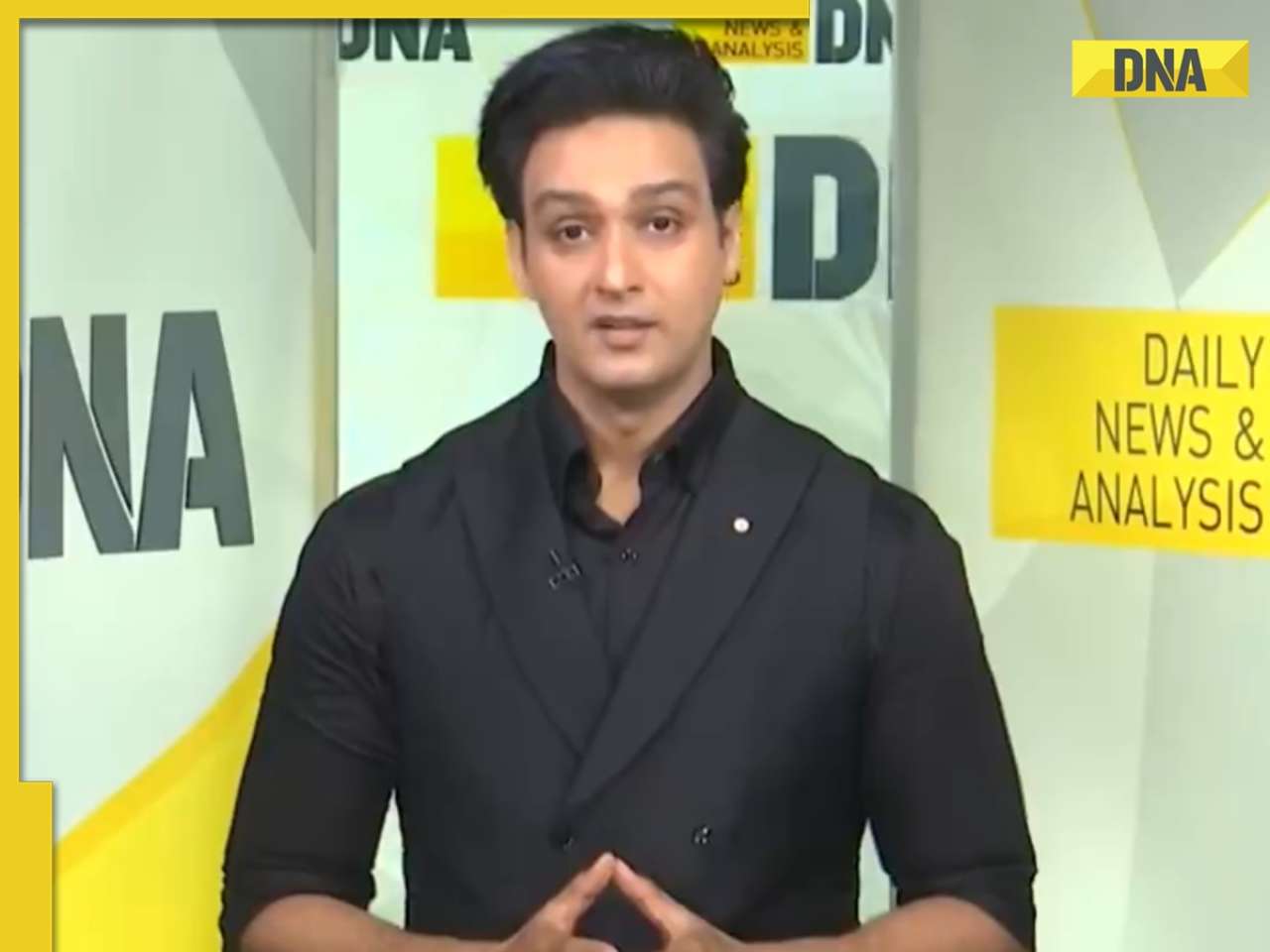


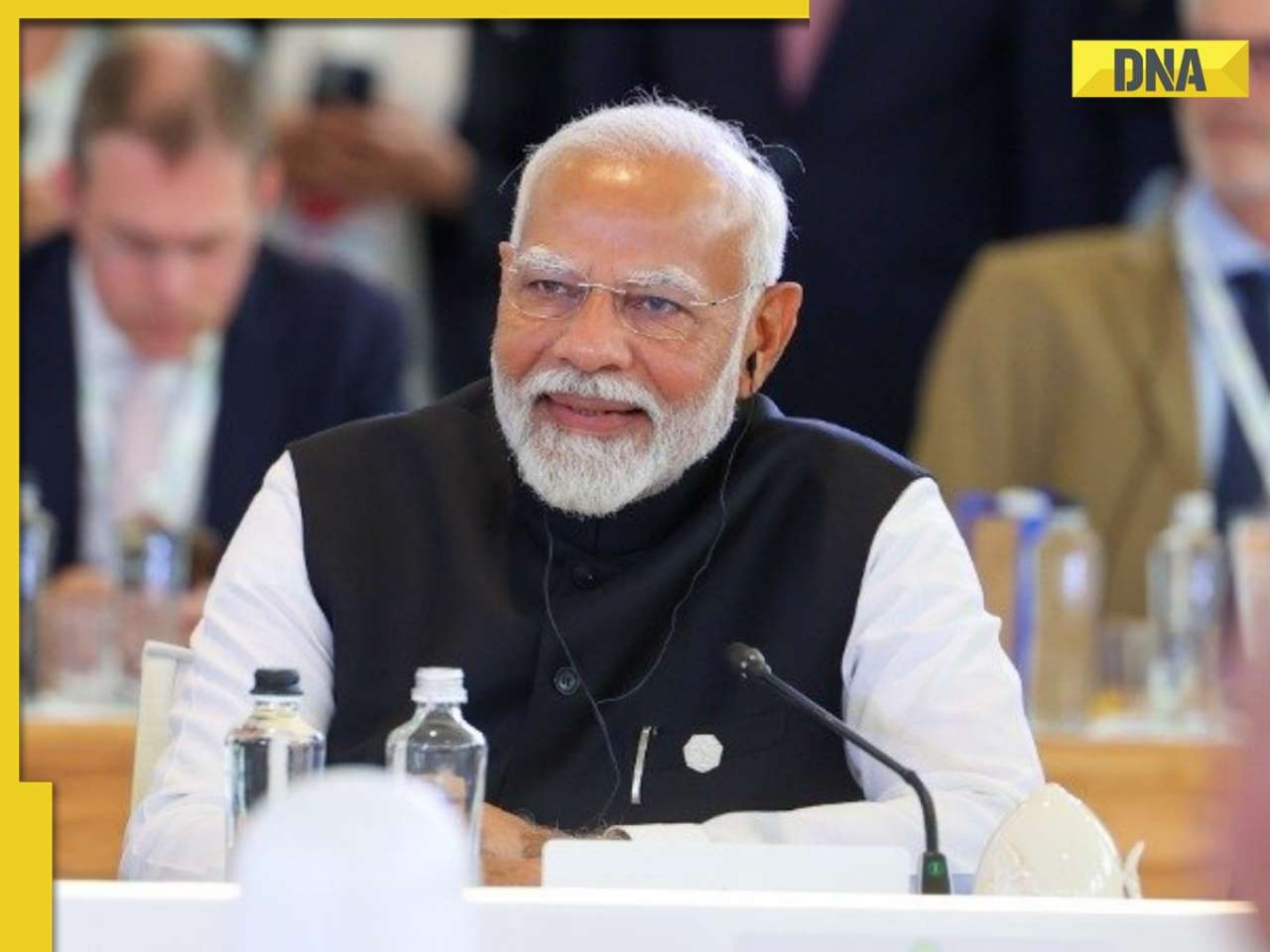





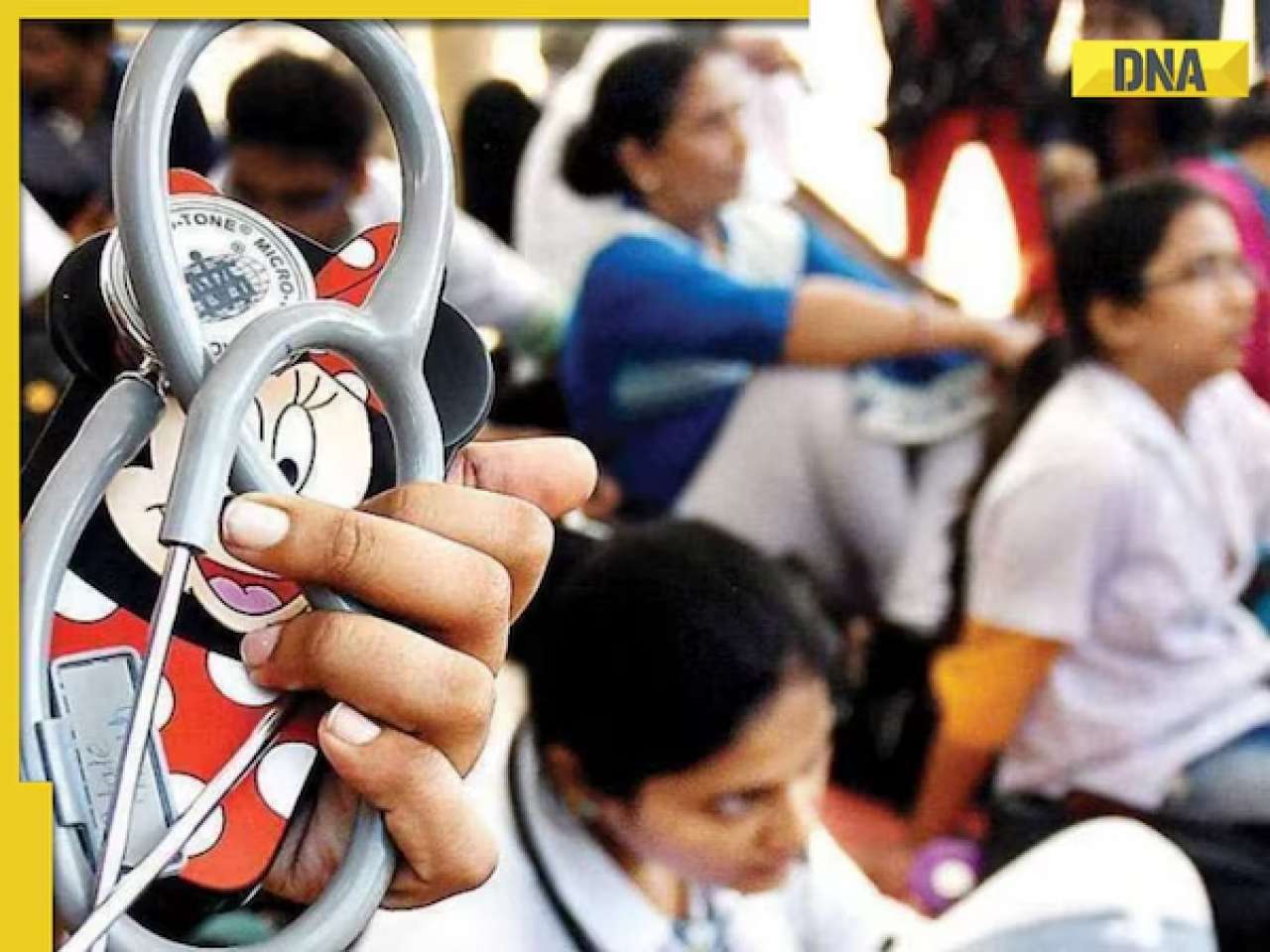

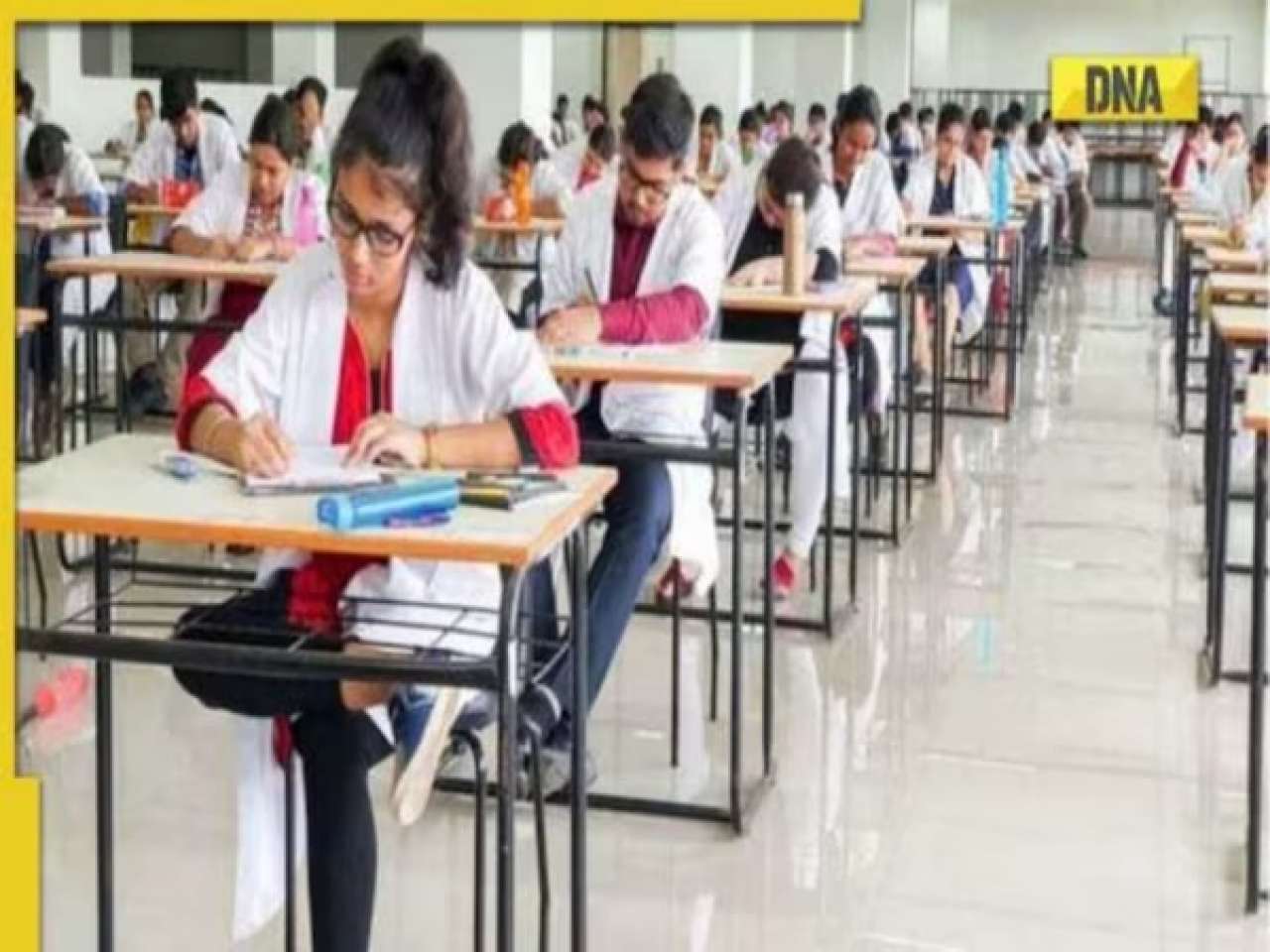

























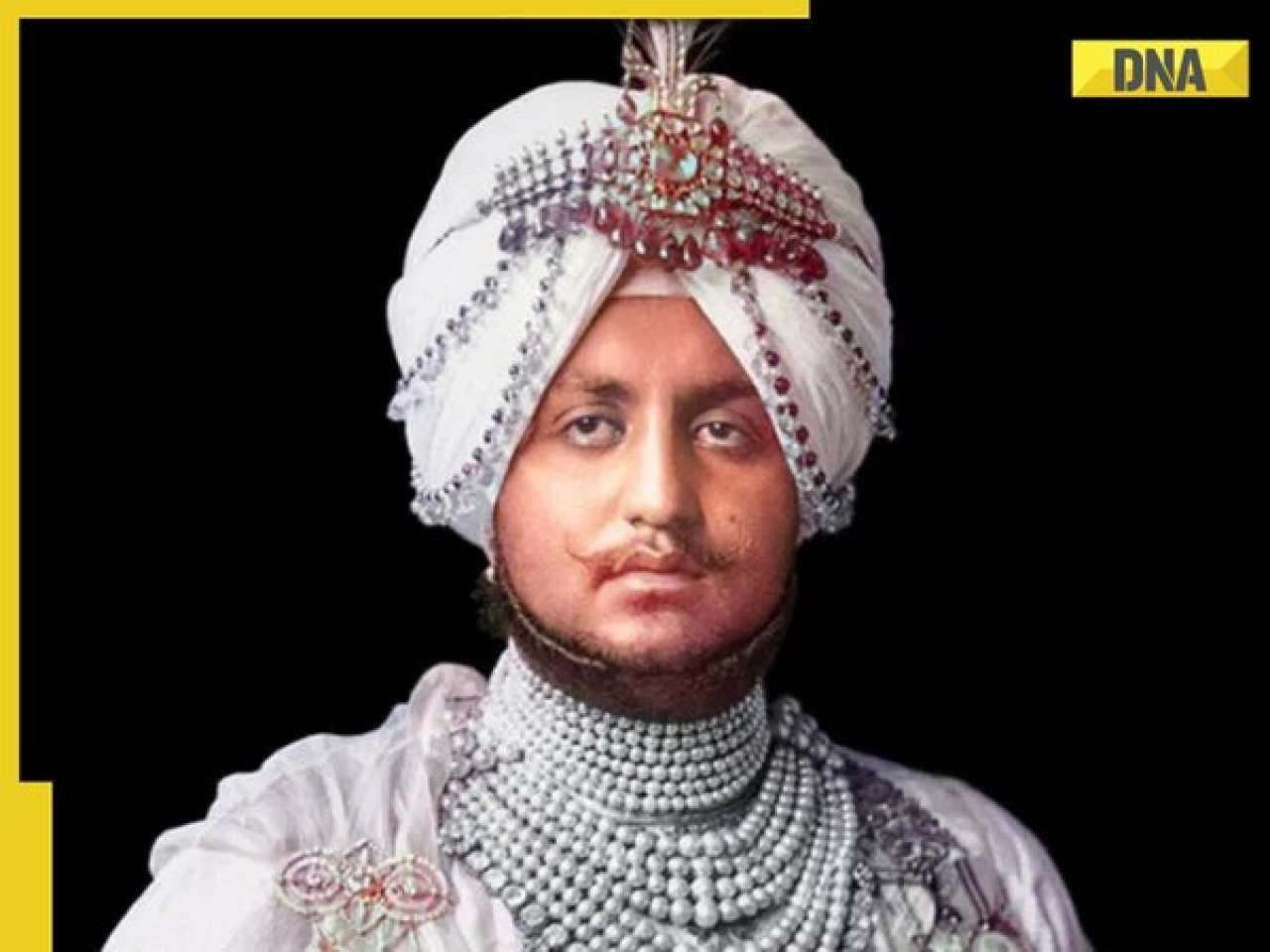

)




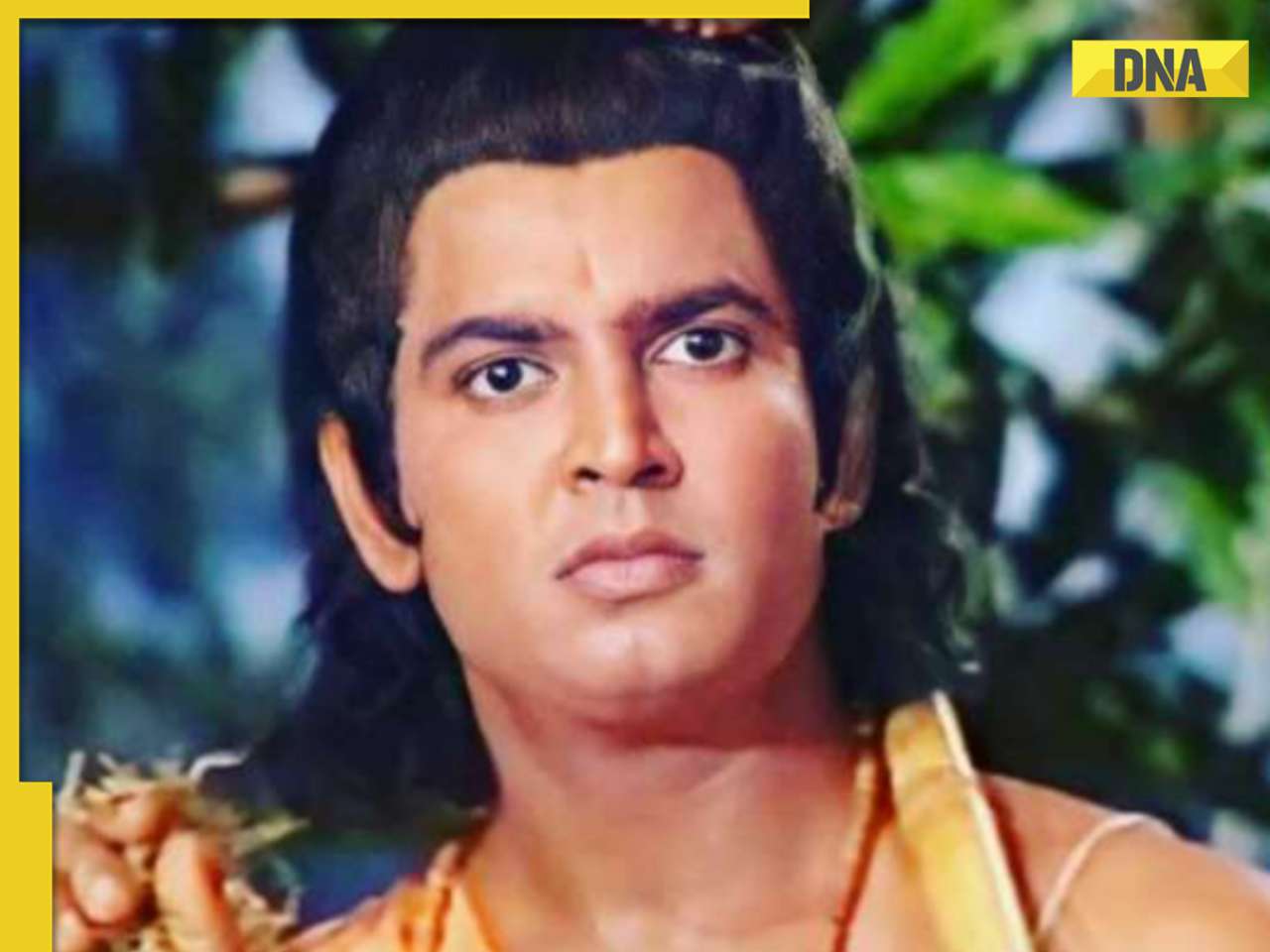
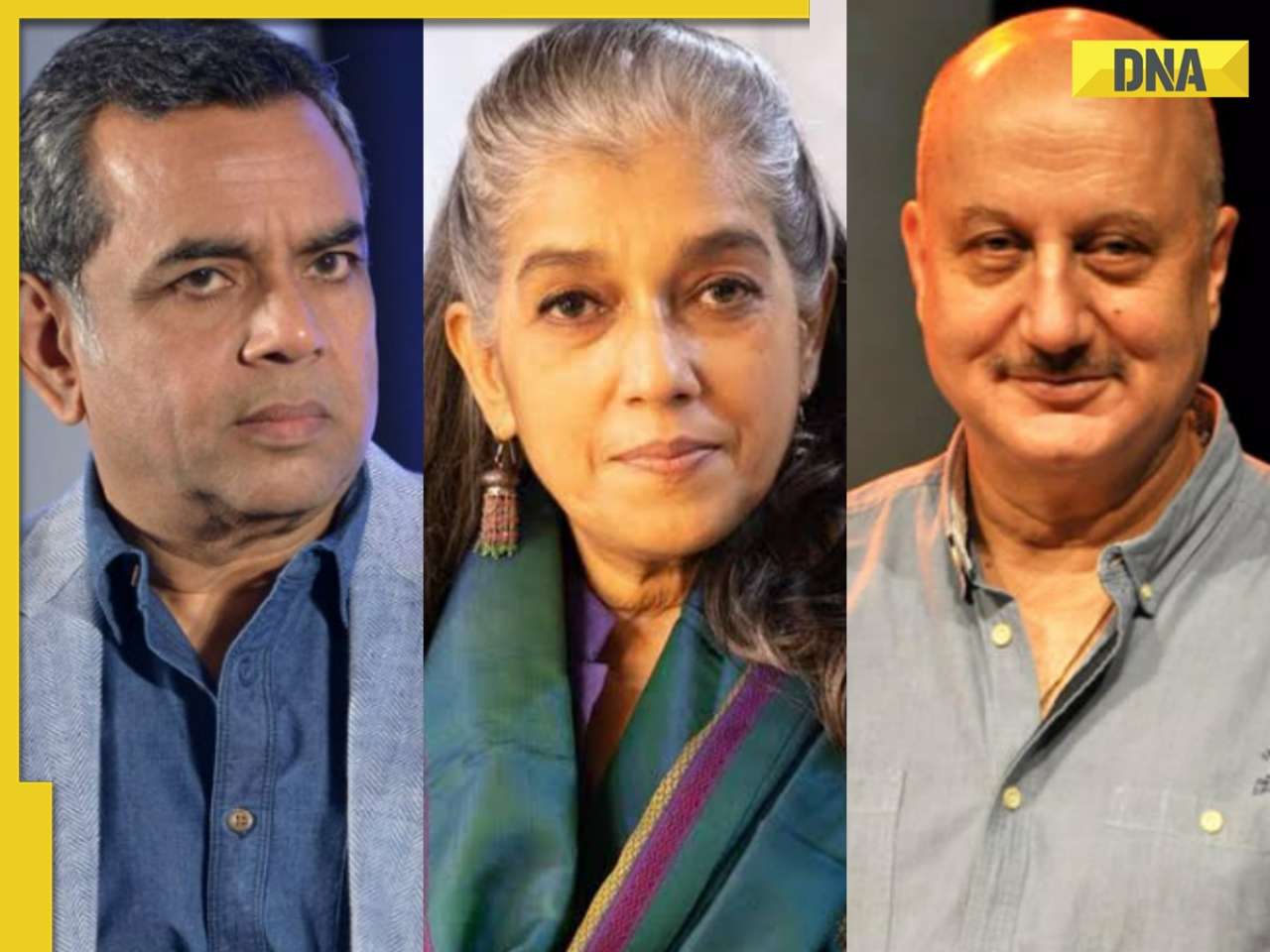


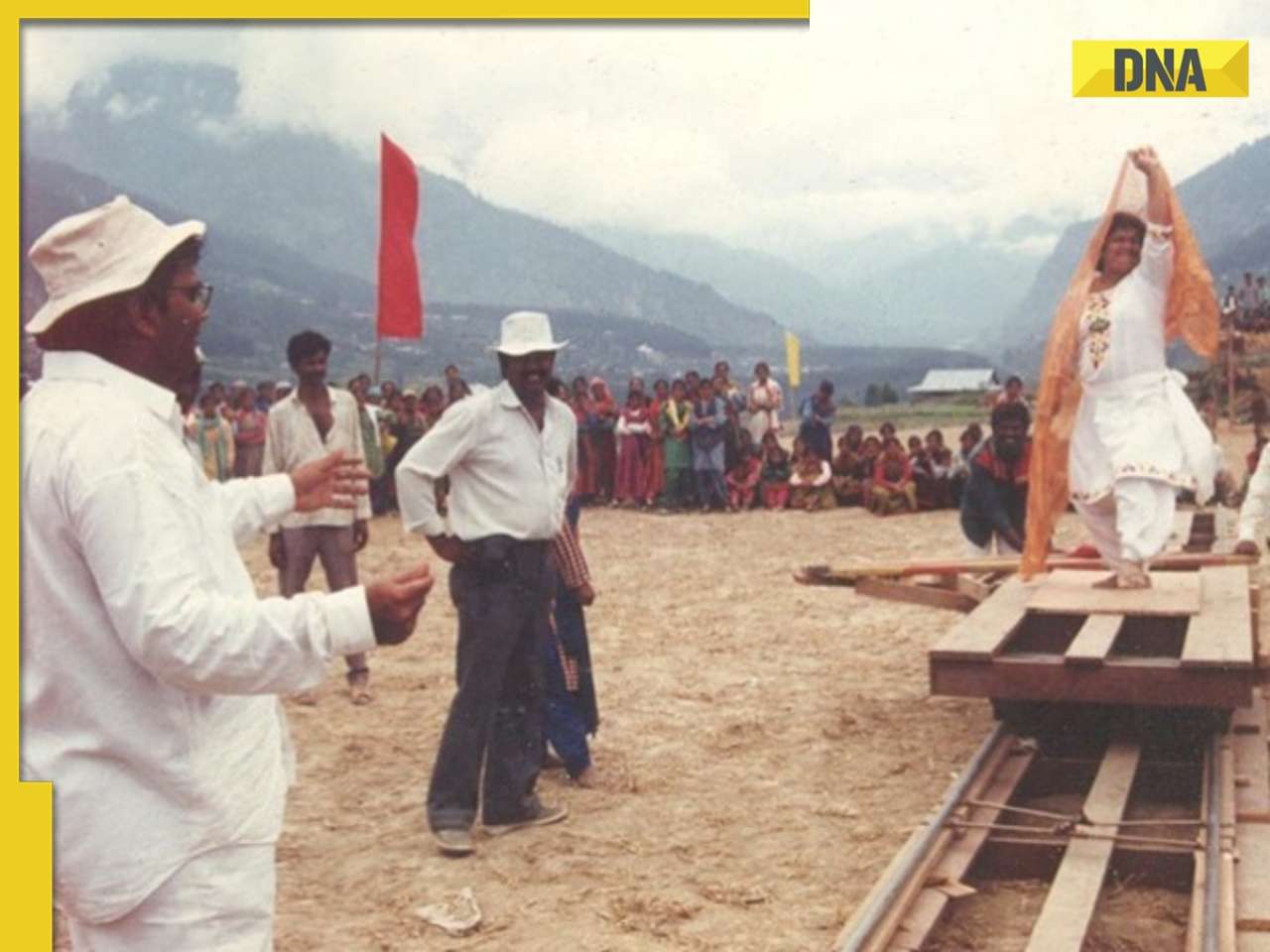




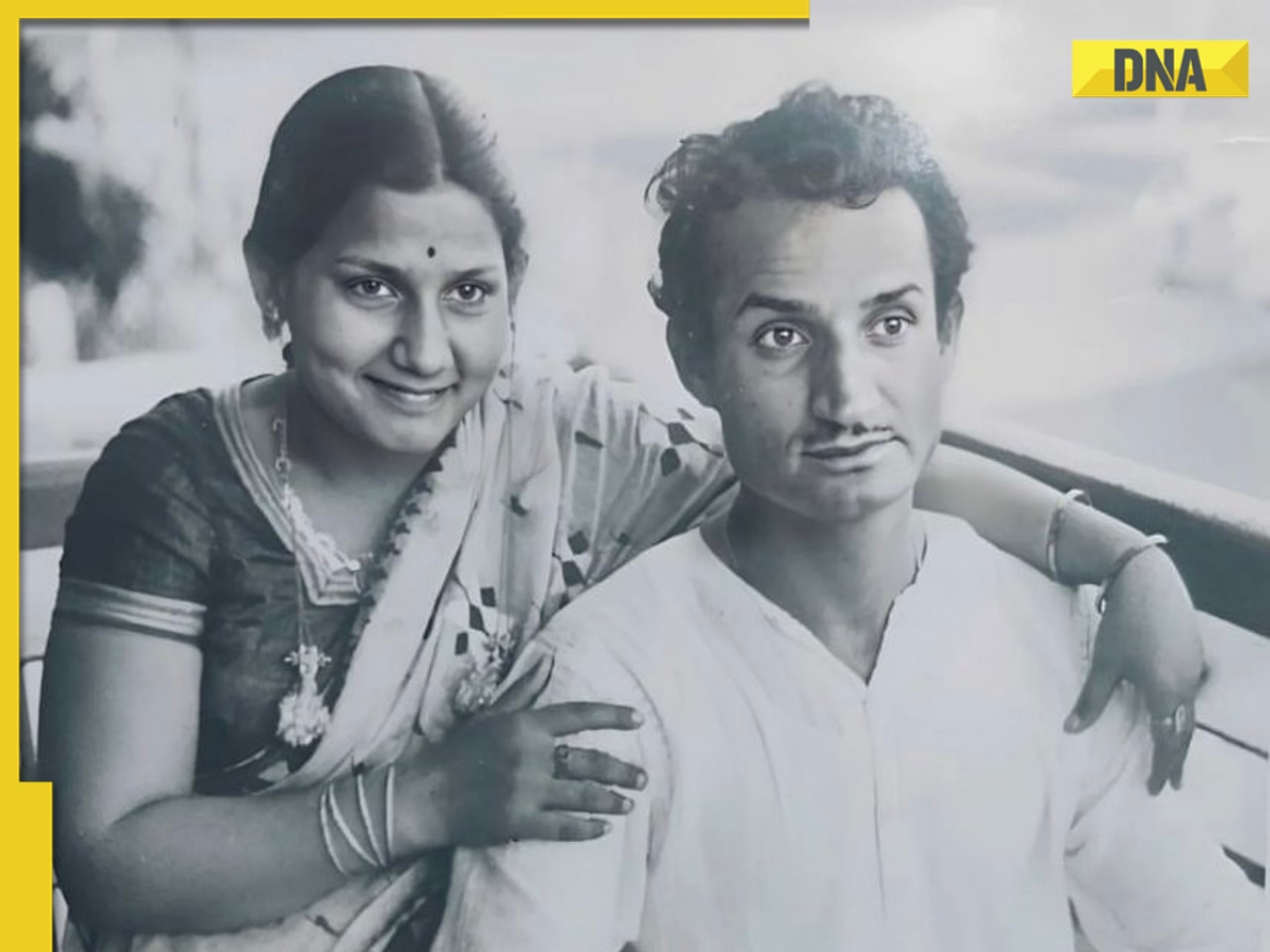




)
)
)
)
)
)